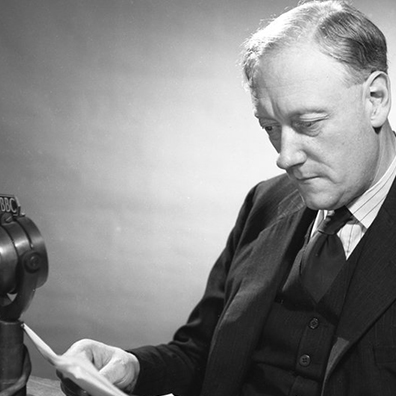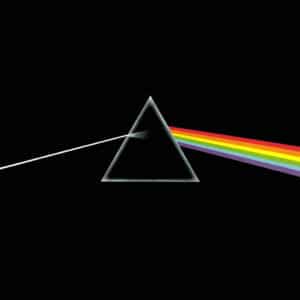
Sleep? What’s So New About It? Part I
1675 words • 8 minutes

Well, now that you mention it there is quite a bit new in sleep research. So before you doze off might I be allowed to “catch you up” with what is going on?
No doubt you enjoy those great “S” words that have to do with rest—slumbering, snoozing, sleeping, sacking out, or, if you prefer to sleep while stumbling around at night, then the word somnambulism is for you!
I realize that I am as predictable as a clock striking noon when it comes to talking about sleep, but to be fair everyone has a personal hobby horse and sleep is mine.
Yet I have
When my youth, unfortunately, gave way to the requirements of adulthood, I found myself working as a pilot. Now, if you know the salt mines of shift work then you know what it is like to be without sleep. Whether working in transportation as I did, in hospital care as a doctor, nurse, or orderly, warehousing, Alaskan fisherman, or any of the 24/7 gigs of today, then you wear the scars of the wantonness, carelessly cruelty, and off-hand brutality of many work schedules—schedules that take a breathtakingly abject disregard for a normal sleep/wake cycle. Being on duty without having had decent rest in the previous 24, 30, or 36 hours is, at least from my experience, not uncommon in these fields. I estimate that in my working career I have turned in well over 1000 “all-nighters” and I don’t consider myself an exception.
The taunting “joke” behind this is that management, with the legal department whispering exactly what to say in their ear, always claims complete innocence in telling the worker bees that they would never in a million years expect you to be working when fatigued. They would be shocked, shocked I tell you (!!!), to discover that anyone could be struggling with chronic fatigue due to loose scheduling practices.
Note: This shocked demeanor is so transparent as to be silly. It is like exclaiming “There is drinking going on in this bar!” or “There is spying being conducted from this embassy!”

The Dream of the Average Folk
My web designer agrees that this is what he dreams of most nights!
Of course, I use the word “joke” sardonically for the reality is that when you are sleep deprived you are no longer a fair judge of your own impairment. Telling someone to be fully aware of fatigue/sleepiness is like handing the car keys to a drunk and telling him to drive carefully. Just like that drunk, however, who thinks he is perfectly fit to be behind the wheel, you feel that you have the situational awareness to know when enough is enough. Yet tests overwhelmingly show that this is a false perception and so the supposed fail-safe mechanism of you being the last line of defense when it comes to safety is merely an illusion—a house built upon the sand.
We have all had the nightmare (pun intended) of being in the saddle long after Morpheus and the Sandman have told us to get into bed…all the while with management playing the ingénue with their calls to “oh, by all means stand down if you are too tired.” I did this once in the military and had a full Colonel profanely sandblast me for doing so—all because I delayed the arrival of 40,000 pounds of powdered drink mix to an Air Force base… seriously…
Fortunately, for those enlightened souls who seek a modern work/life practice that is based on good sense and science as opposed to machismo, the new research clearly reveals why we need to sleep and what is going on in our brains when we do. But it also sounds the alarm of the great health and productivity disservices we do to ourselves, our families, our employers, and even our society when we do not get quality sleep.
Dr. Matthew Walker, now working at Cal Berkley, is one of the young scientists in the vanguard of sleep research. His recent book Why We Sleep was, if you will again excuse a pun, a real eye-opener for me as to the standard of modern sleep research—and I say this as one who has read tons of books, articles, and scholarship on this topic.
While he explains the why of sleep (rejuvenation, memory consolidation,
According to Walker 2 million people this week, yes that over 250,000 a day, will fall asleep driving their vehicles—even if that sleep is just “micro-sleep” in which one
Sadly, all the tricks we try to keep ourselves going are yet another false illusion of how we approach
Dr. Walker writes in that very smooth narrative style that is the gift of many of his fellow Englishmen and women and he never drops the reader into a rabbit hole of technical jargon. While he is modest about his accomplishments, it is clear that his research team
Sadly, getting less sleep than we need is viewed as a badge of honor in our society. How often do you hear, perhaps from your own lips, someone say that they can get by just fine on 6, 5, or even 4 hours of sleep a night? Ah! Therein lies the trap. Ronald Reagan and Margaret Thatcher were almost boastful in trumpeting their need for little sleep. Yet both drifted into dementia and even Alzheimer’s later in life—a decline that was in sharp contrast to their previous energetic personas. Granted other factors are always involved when it comes to health issues, but Walker makes a strong case as to how sleep cleans out the amyloids that glob and goo our brains—amyloids that researchers believe to be one of the causes of Alzheimer’s and related conditions.

Dr. Matthew Walker, the expert on sleep!
Sadly, it is not only politics that attracts these “I don’t need much sleep” types. Just look at the upper echelons of the business world to see countless examples who view sleep as an inconvenience best left to the weaker among us.
Walker pushes back very hard on this. With the exception of a statistically insignificant group, a vanishingly small number
His teams are showing, over and over again, just how quickly and deeply we become impaired when we lose even an hour a night of good rest. Those who get less than the necessary 7 to 9 hours a night have set a baseline in which they are operating impaired. While these individuals claim to be doing fine, tests show that they are far from being in
As with Reagan and Thatcher, often the effects of sleep deprivation do not manifest themselves until it is too late. Incidences of cancers, cardiac/heart disease, and other life-ending problems are widespread among those who consistently avoid the arms of Morpheus.
Although certainly there are other contributing factors that might lead those “I only need 4 hours a night” champions to grief, there is no avoiding the dangers involved with not getting enough shuteye. The sleep disruptions caused by shift working and the hours that go along with our modern world are, quite frankly, killers—killers that do not even pretend to wear a disguise. The World Health Orginization (WHO now considers night shift work as a “possible carcinogen.” Yikes!
I encourage you to either read his book or watch/listen to him on this two-hour interview. You can even download the audio if you wish. Dr. Walker on the Rogan show I advise caution
I know most writers would never say this, but I hope that during the course of our little chat you have drifted
![]()







Didn’t listen to entire Walker interview but what I heard was very, very informative. I will finish listening later. I think many people would benefit from hearing what he has to say. Thanks for the link!
He really is a good speaker isn’t he? It is a long interview so I can understand in breaking it up into chunks.